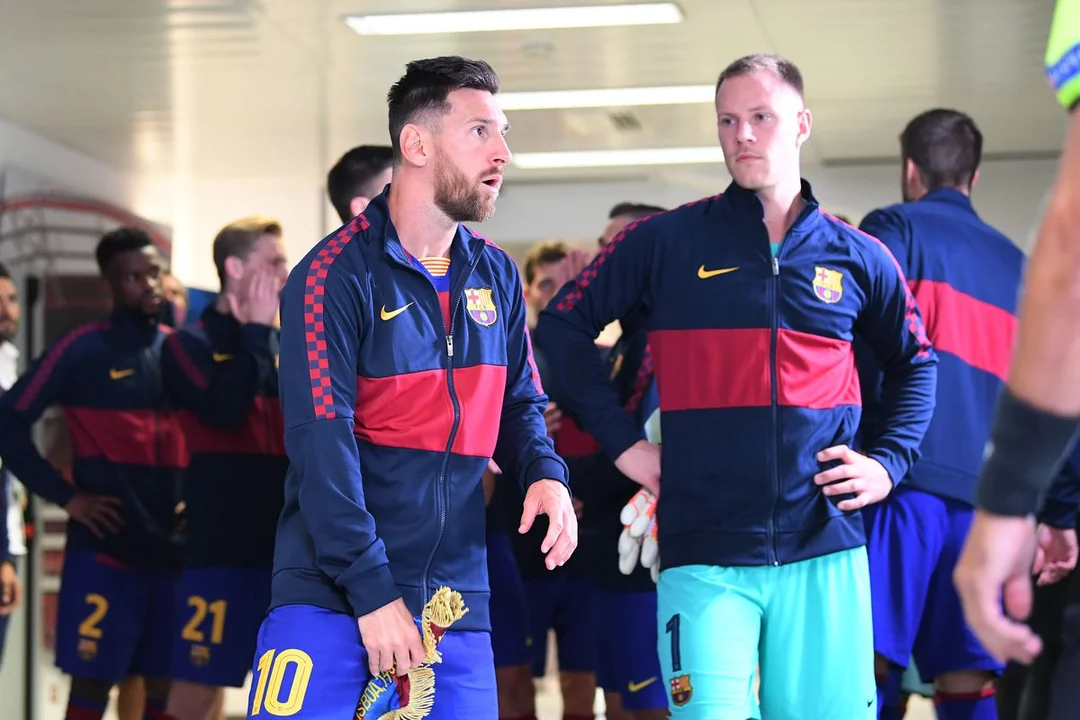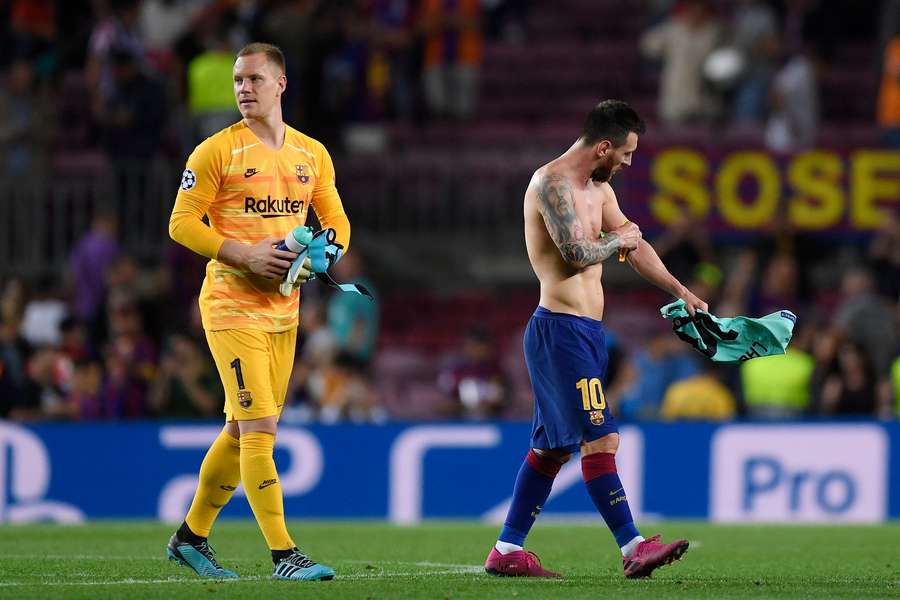
Behind The Goal: The Untold Story Of Ter Stegen’s Complex Bond With Lionel Messi
Barcelona's rich tapestry of triumphs has always masked the simmering dynamics inside its celebrated dressing room. Now, the club’s current captain Marc-Andre ter Stegen offers an unfiltered glimpse into his at-times uneasy relationship with Lionel Messi — a revelation that peels back the curtain on two iconic stars navigating ambition, tension, and leadership at the Catalan giants.

In a candid conversation on the Phrasenmäher podcast, ter Stegen confirmed persistent whispers of a rocky rapport during their eight-year stint together. The goalkeeper painted a vivid portrait of Messi’s fierce competitive edge, capable of humiliating teammates when displeased. “He’s probably the only player who can put a ball at your face if he wants. He has that ability. Others would shoot elsewhere; he could hit the target. He’s done it several times,” Ter Stegen confessed, highlighting the Argentine’s unmatched precision but also the underlying ‘anger’ that sometimes drove such moments.
The German shot-stopper elucidated that while outright conflicts were absent, moments of mutual annoyance certainly emerged — particularly in their final years sharing Barca’s crest. “Messi gets motivation from many things that we don’t. We’ve had times when things didn’t work out between us because he was annoyed with me and I was annoyed with him.” This rare admission counters the often idealised image of tightly-knit superstars and underscores the natural frictions inherent in elite squads primed for success.
Interestingly, ter Stegen emphasised Messi’s understated leadership style. Unlike vocal captains, the seven-time Ballon d’Or winner commanded respect through gravitas rather than words. “Leo doesn’t have a big mouth; he works hard with presence and needs to say relatively little. And when he says something, everyone listens. That’s what you want to achieve as a captain,” Ter Stegen explained, recognising the Argentine’s influence despite stylistic differences.
Ter Stegen’s reflections also imply a broader commentary: such personality clashes, while unavoidable, may influence team chemistry but rarely topple collective goals at clubs of Barcelona’s calibre. Still, subtle tensions may have exacerbated wider issues as Messi’s time neared its end, amid mounting questions over leadership and efforts across the squad.
The story comes at a turning point as new captain Ter Stegen, recovering from knee injury, tips prodigious teenager Pedri as a future armband bearer. Speaking on the same podcast, he lauded, “For me, he is already a phenomenon, and I wouldn’t be surprised if he took over as captain. He’ll leave his mark on this club for a long time.” This endorsement signals a generational shift post-Messi, rooted in fresh humility and unity.
Ter Stegen also heralded manager Hansi Flick’s impact during a strong debut campaign: a leader “very good at empathising with people…finding a good balance – also with young players – and gets everyone on the same page.” It may be the formula Barcelona desperately needed after tumultuous transitional years.
Ultimately, the keeper’s candid insights enrich the narrative of a club in evolution — from Messi’s magnetic but sometimes mercurial reign, to emerging stars and new leadership seeking harmony. Such honesty invites reflection: what is the real cost and benefit of magnetic yet fiery personalities in elite teams?
As Barcelona charts its new chapter, fans worldwide are left to ponder — how much does success rely on both passion and patience behind the scenes? Share your thoughts below on this complex folklore of football giants — should creativity and competitiveness override camaraderie, or vice versa?